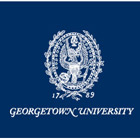- News and articles
- Find usIDP AustraliaIDP BahrainIDP BangladeshIDP CambodiaIDP CanadaIDP ChinaIDP EgyptIDP GhanaIDP Hong KongIDP IndiaIDP IndonesiaIDP IranIDP JordanIDP KenyaIDP KoreaIDP KuwaitIDP LebanonIDP MalaysiaIDP MauritiusIDP Middle EastIDP NepalIDP New ZealandIDP NigeriaIDP OmanIDP PakistanIDP PhilippinesIDP Saudi ArabiaIDP SingaporeIDP Sri LankaIDP Taiwan, ChinaIDP ThailandIDP TurkeyIDP UAEIDP VietnamIDP Corporate
- Social
- English
- Where we operate
- Courses
- Scholarships
- IELTS
- About IDP
- Student Essentials
- News and articles
- Find us
- Find us
- Find nearest IDP offices
- IDP Australia
- IDP Bahrain
- IDP Bangladesh
- IDP Cambodia
- IDP Canada
- IDP China
- IDP Egypt
- IDP Ghana
- IDP Hong Kong
- IDP India
- IDP Indonesia
- IDP Iran
- IDP Jordan
- IDP Kenya
- IDP Korea
- IDP Kuwait
- IDP Lebanon
- IDP Malaysia
- IDP Mauritius
- IDP Middle East
- IDP Nepal
- IDP New Zealand
- IDP Nigeria
- IDP Oman
- IDP Pakistan
- IDP Philippines
- IDP Saudi Arabia
- IDP Singapore
- IDP Sri Lanka
- IDP Taiwan, China
- IDP Thailand
- IDP Turkey
- IDP UAE
- IDP Vietnam
- IDP Corporate
- Social
- Language Switcher
- IDP Education /
- Colleges and Universities /
- United States /
- Georgetown University /
- Doctor of Philosophy in His...


Location
United States
Qualification
Ph.D.
Fees
USD58848
(2025)
Duration
6 Semester(s)
Next intake
18 August 2025
Entry Score
7.0
IELTSCourse info
Georgetown's graduate program in Asian history offers students a chance to study with internationally renowned specialists amidst the diverse opportunities and rich research collections of the Washington D.C. area (including the National Archives, Library of Congress and Smithsonian Institution). Faculty interests cover the social, cultural, political, diplomatic and environmental history of early modern through twentieth-century Asia, with particular specialties in the history of medicine, Christianity in Asia, Chinese Inner Asia (Tibet, Xinjiang, Mongolia and Manchuria) and Central Eurasia, Asian environmental history, Japanese urban and cultural history, colonial Asia, and Asia in world history. Students may also work with history faculty outside the Asian subfield on subjects that cross geographic or thematic boundaries, such as environmental or imperial history, or on topics involving China and Russia, Islam, Central Asia or the Pacific World. Students may also profit from interaction with Georgetown's Asianist faculty members in other disciplines, including government, economics, law, art history and theology.
- Scholarships
- Internships
Course fees are indicative and should be used as a guide. to get an accurate price.
Duration: 6 Semester(s)
Fees: USD58848
| Intake | Location |
|---|---|
| Fall (August), 2025 | Washington |
| Fall (August), 2026 | Washington |
Entry requirements for Georgetown University
Applications for PhD admission include:
a 500-word, double spaced statement of purpose,
a substantive sample of work (research papers preferred, maximum of 50 pages, if you are excerpting a larger work, please provide a cover page explaining the selection and larger context),
unofficial transcripts from any and all college and universities attended (see note below on unofficial transcripts),
GRE General Test scores (optional),
TOEFL/IELTS where applicable (see note below on language proficiency),
and three letters of recommendation.
Resume/CV
TOEFL/IELTS (if applicable)
TOEFL = 80 minimum
IELTS = 7.0 minimum
Application Deadline
The application deadline isn't available Speak to an IDP counsellor for more detailed information
Further information
If you aren't eligible for the above entry requirements, you might ant to explore pathway options at Georgetown University. If you want to find out more, speak to our counsellors.
THE World Ranking
201st / 1250
THE World RankingWhat our students think
We’ve haven’t received any reviews for this institution yet.
Recommended for you
- THE World Ranking:122
- Ph.D.
- East Lansing , United States
- Next intake:08/2025
- Entry Score: IELTS 6.0
- USD30663 (2025)
- THE World Ranking:122
- Ph.D.
- East Lansing , United States
- Next intake:08/2025
- Entry Score: IELTS 6.0
- USD30663 (2025)
- THE World Ranking:122
- Ph.D.
- East Lansing , United States
- Next intake:08/2025
- Entry Score: IELTS 6.0
- USD30663 (2025)
- THE World Ranking:98
- Ph.D.
- Atlanta , United States
- Next intake:08/2025
- Entry Score: IELTS 6.0
- USD46800 (2025)
- THE World Ranking:14
- Ph.D.
- Philadelphia , United States
- Next intake:08/2025
- Entry Score: IELTS 6.0
- USD41544 (2025)
- THE World Ranking:6
- Ph.D.
- Stanford , United States
- Next intake:09/2025
- Entry Score: IELTS 6.0
- USD38160 (2025)
- THE World Ranking:98
- Ph.D.
- Atlanta , United States
- Next intake:08/2025
- Entry Score: IELTS 6.0
- USD46800 (2025)
- THE World Ranking:801
- Ph.D.
- Memphis , United States
- Next intake:06/2025
- Entry Score: IELTS 6.0
- USD17010 (2025)
Your action plan
Step 1
Shortlist your courses
Choose the best three courses you’re most likely to pursue.
Step 2
Check your eligibility
Get an instant in-principle offer for courses with the IDP FastLane tag.
Step 3
Apply through IDP Live
Fill out the form once and use it to apply to multiple courses.
How does IDP FastLane work?
With the FastLane 'Offer in Principle', you'll know in minutes if you'll be accepted!
Select an institution and course
Create your academic profile
Submit your application for an 'Offer in Principle'
Your chosen institution(s) will send you a decision in minutes!
Get ready to apply with an expert counsellor




